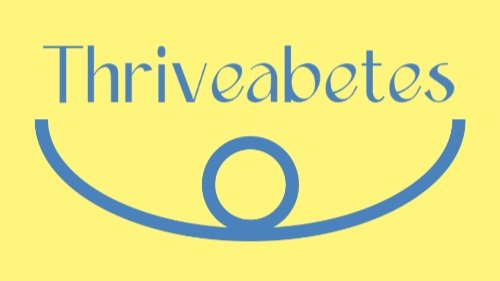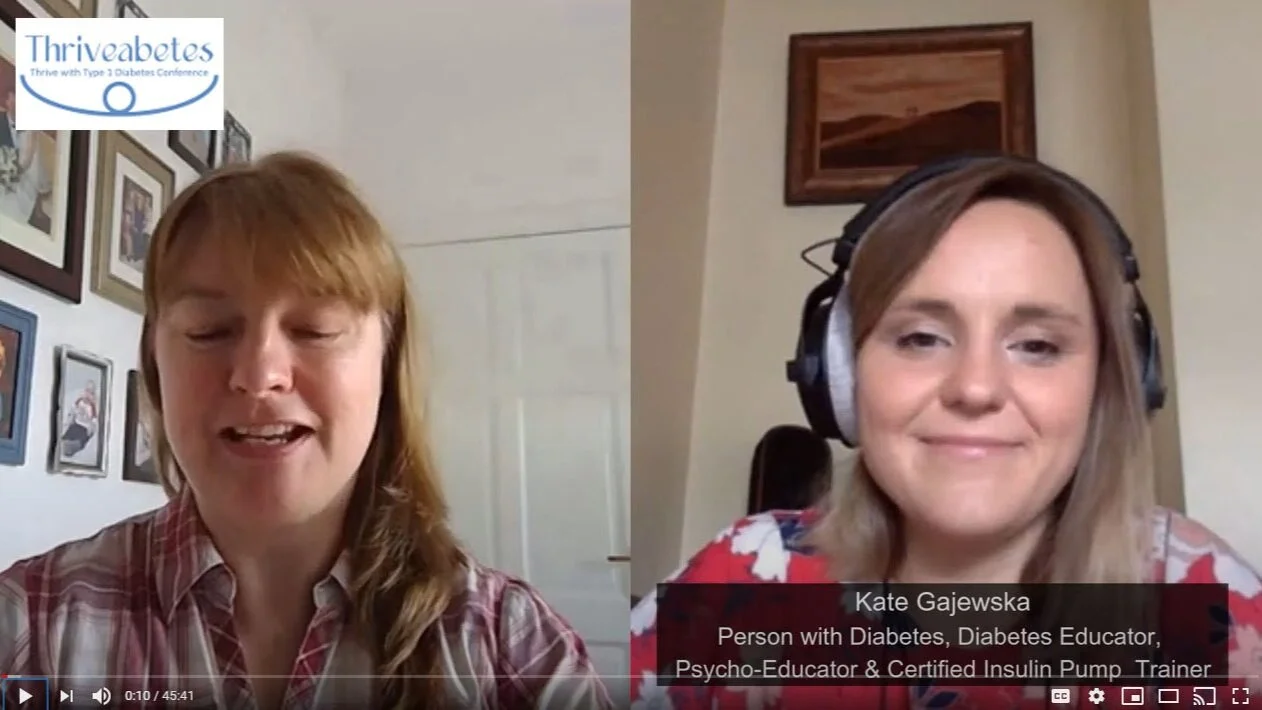This post is sponsored by OxyGeneration. All opinions expressed are those of the author (Gráinne Flynn, cofounder of Thriveabetes). Thriveabetes only collaborates with partners whose values align with ours and whose products or services we genuinely believe benefit our community.
One of the many disadvantages of living with diabetes is that we may be prone to slower healing, especially those of us unfortunate enough to experience foot ulcers or skin wounds. I was recently approached by a Galway-based family-run company called OxyGeneration, which wanted to share information about a service that might benefit people with diabetes. OxyGeneration is a clinic specialising in Hyperbaric Oxygen Therapy (HBOT). When I spoke to the team, we discussed the potential benefits of HBOT for people with diabetes, as some of their existing clients do live with diabetes.
What Is Hyperbaric Oxygen Therapy (HBOT)?
Have you ever heard of hyperbaric oxygen therapy? I had, but to be honest, all I knew was from fictional places such as Gray’s Anatomy back in the day and the chilling series on Netflix Department Q. Actually, when I told a friend that I was visiting the OxyGeneration clinic, her panicked response was "Have you not seen Department Q on Netflix?”. It was a much-needed chuckle that day.
Hyperbaric Oxygen Therapy (HBOT) involves breathing oxygen in a pressurised chamber; in this case, OxyGeneration’s chamber is a 14-seater chamber, and is wheelchair accessible.
The pressure helps more oxygen dissolve into your blood. This extra oxygen can reach areas of your body that don’t receive enough blood and can help them heal more quickly.
Why Might HBOT Be Relevant to People with Type 1 Diabetes?
Thriveabetes CoFounder, Gráinne visiting the OxyGeneration Clinic in Galway
For people living with diabetes, wound healing can be more complicated, particularly when it comes to foot ulcers or slow-healing injuries. Scientific research, some of which is listed below in the additional resources section, has shown that HBOT can support the healing process by:
Enhancing oxygen delivery to damaged tissues
Promoting the growth of new blood vessels
Reducing inflammation and swelling
Fighting infection
While HBOT is not a replacement for diabetes management or standard medical treatment, it may be considered as part of a broader plan for wound care, especially in cases where healing is delayed.
How HBOT Works
During HBOT sessions, people breathe oxygen (>93% purity) through a mask in a pressurised chamber. This significantly increases the oxygen levels in the blood, which supports tissue repair, helps the body fight infections, and reduces inflammation, encouraging faster and more effective healing of wounds and ulcers.
HBOT is known to:
Boost oxygen delivery: breathing in more oxygen while under pressure means more reaches the damaged tissues, even in areas with poor blood supply
Encourage blood vessel growth: forming new blood vessels improves the delivery of oxygen and nutrients, which are essential for wound healing
Reduce swelling: as inflammation decreases, discomfort eases, and tissues can recover faster
Support collagen production: the body is encouraged to produce more collagen, which is vital for wound repair
Fight infection: high oxygen levels help the body fight off infections and create an environment where harmful bacteria struggle to survive
Many people with diabetes who have foot ulcers report reduced pain, faster healing, and improved quality of life after undergoing HBOT. Treatment sessions typically last 60-90 minutes, during which people can relax, read or watch TV.
What to consider as a person with type 1 diabetes contemplating HBOT?
As a person living with type 1 diabetes who wears a Continuous Glucose Monitor (CGM) and an insulin pump, I asked about the safety of these devices within the pressurised chamber. Especially, since I have experienced and read about glucose changes when the pressure changes during flights on aeroplanes (Garden et al., 2025). If you use an insulin pump, you may need to adjust your insulin delivery settings before treatment to compensate for HBOT’s potential to increase insulin sensitivity and the impact of the pressure change on your insulin pump delivery to avoid low glucose levels. You also have the option to bring any hypo treatments or snacks you prefer into the chamber, which I recommend.
My immediate concern was for the safety of my pump and CGM inside the chamber, and I did quite a bit of “googling” for research on this. I did find a small study, focusing on the use of Dexcom G6 CGM in HBOT, published by Bliss et al. in 2020. This study revealed no significant safety concerns related to this CGM. While it’s not ideal to remove your CGM for treatment, it is a lot easier than replacing an insulin pump. However, you do have the option to disconnect from your insulin pump for the 90-minute session and store it in a locker outside the chamber. I would also recommend bringing a finger-stick glucose meter as a backup plan in case your CGM fails.
The team at OxyGeneration will require confirmation from your diabetes team or from the insulin pump manufacturer and CGM manufacturer stating that the device is safe to use within the chamber as part of their referral policy.
OxyGeneration’s Background
Located on Merchant’s Road, Galway City, OxyGeneration is a modern, walk-in centre offering sessions in a comfortable, multi-person chamber. Parking is available across the road at Hynes Yard (at a discount day rate for clients) and the clinic, chamber and toilet/ shower facilities are all wheelchair accessible. The therapy is safe and non-invasive.
The team at OxyGeneration is trained to support clients through the process and can answer questions about how HBOT might fit into your overall care.
One of the founders, Brian Lynch, first came across hyperbaric oxygen therapy over thirty years ago when a client of his benefited from sessions, and over the years, he has seen numerous lives transformed by it. In 2015, Brian broke his pelvis in a horse-riding accident. As part of his recovery, Brian went from St. James’ Hospital in Dublin over to the National Hyperbaric Centre for daily sessions to help his recovery. After being discharged from the hospital and returning home to Galway, Brian found himself in a routine of driving to Dublin and completing a cycle of over 60 sessions. Brian found that HBOT reduced the amount of time he spent in a wheelchair, and really helped his recovery from his surgeries. As a result of this experience, he was inspired to open up OxyGeneration so that HBOT would be more readily available to people living in the West of Ireland.
OxyGeneration is a small family-owned business with a very dedicated team of staff. It is a local business that makes a real difference.
Learn More
Talk to Your Healthcare Team
If you're curious about whether Hyperbaric Oxygen Therapy could be beneficial for you, it's important to speak with your diabetes care team. HBOT is not suitable for everyone, and your healthcare provider can help assess whether it may be appropriate for your individual needs. Please note that OxyGeneration is a service provider and not a diagnostic centre. At all times, clients remain under the treatment of their existing medical team.
Cost:
OxyGeneration is an Irish Life Health-approved provider of HBOT services and is working with the other major health insurance companies to become an approved provider. One session costs €135; however, six sessions cost €600, and ten sessions cost €1,100.
People can claim tax relief on the costs of HBOT sessions, as it is a healthcare expense.
You can find more information about how the therapy works, the conditions it may support, and how to book a consultation at oxygeneration.com, by phone at 091 394 444, or by email at info@oxygeneration.com.
Additional References
Bliss C, Huang E, Savaser D. Safety of a continuous glucose monitoring device during hyperbaric exposure. Undersea Hyperb Med. 2020 First Quarter;47(1):13-19. doi: 10.22462/01.03.2020.2. PMID: 32176942.
Bhutani, S., & Vishwanath, G. (2012). Hyperbaric oxygen and wound healing. Indian journal of plastic surgery : official publication of the Association of Plastic Surgeons of India, 45(2), 316–324. https://doi.org/10.4103/0970-0358.101309
Garden, G. L., Fan, K. S., Paterson, M., Shojaee-Moradie, F., Borg Inguanez, M., Manoli, A., Edwards, V., Lee, V., Frier, B. M., Hutchison, E. J., Maher, D., Mathieu, C., Mitchell, S. J., Heller, S. R., Roberts, G. A., Shaw, K. M., Koehler, G., Mader, J. K., King, B. R., Russell-Jones, D. L., … EASA Diabetes Consortium (2025). Effects of atmospheric pressure change during flight on insulin pump delivery and glycaemic control of pilots with insulin-treated diabetes: an in vitro simulation and a retrospective observational real-world study. Diabetologia, 68(1), 52–68. https://doi.org/10.1007/s00125-024-06295-1
Lipsky, B. A., & Berendt, A. R. (2010). Hyperbaric oxygen therapy for diabetic foot wounds: has hope hurdled hype?. Diabetes care, 33(5), 1143–1145. https://doi.org/10.2337/dc10-0393
Memar MY, Yekani M, Alizadeh N, Baghi HB. Hyperbaric oxygen therapy: Antimicrobial mechanisms and clinical application for infections. Biomed Pharmacother. 2019 Jan;109:440-447. doi: 10.1016/j.biopha.2018.10.142. Epub 2018 Nov 3. PMID: 30399579. Link: https://pubmed.ncbi.nlm.nih.gov/30399579/
Myrthong, A. L., Gurav, S., Mahankudo, S., Ansari, K. F., Sawant, M., & Lahoti, K. (2024). Hyperbaric Oxygen Therapy Combined With Standard Wound Care Versus Standard Wound Care Alone in Patients With Diabetic Foot Ulcers: A Prospective Comparative Study. Cureus, 16(12), e74964. https://doi.org/10.7759/cureus.74964






